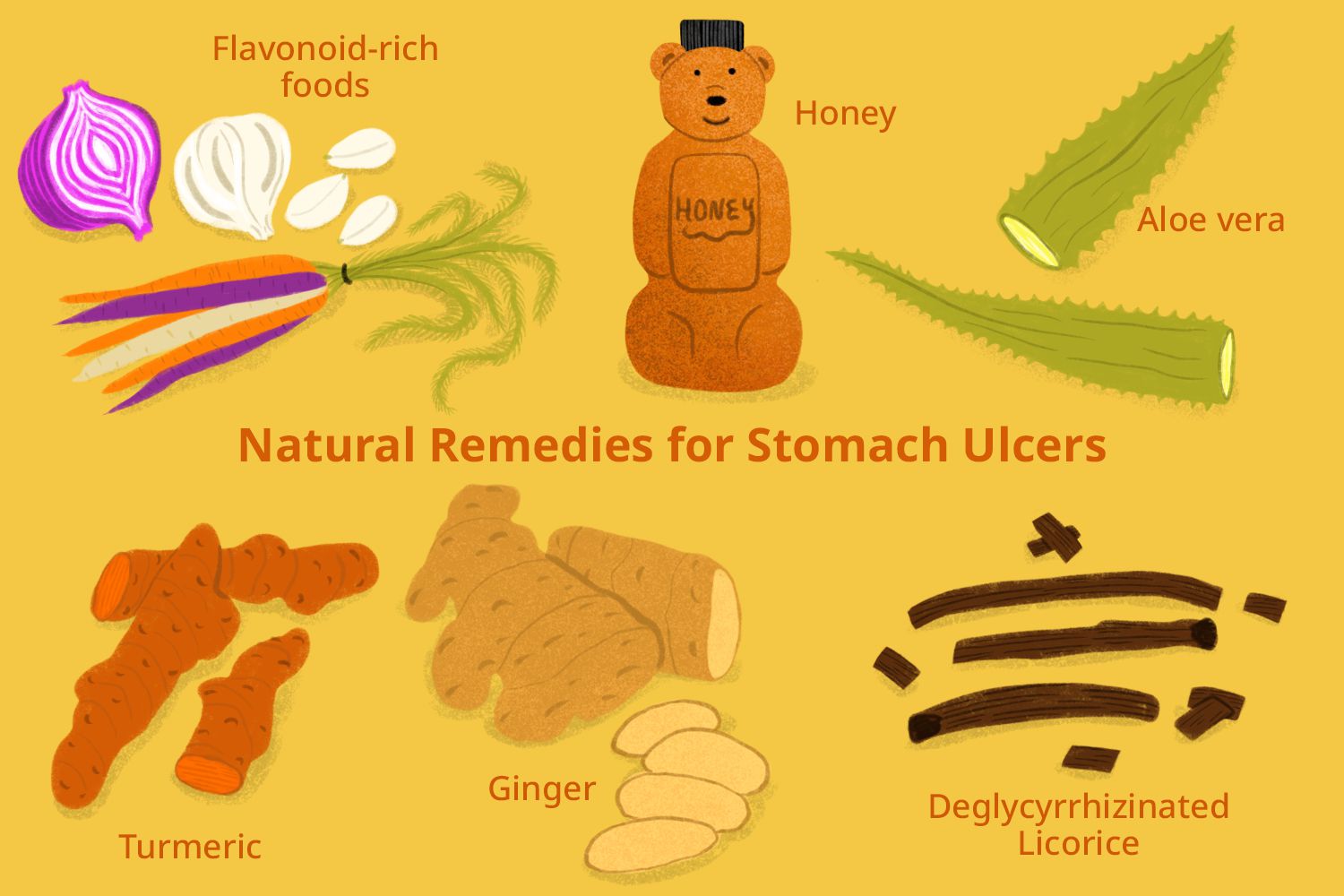
Peptic ulcers are painful sores that develop on the lining of the stomach or the first part of the small intestine. While medical treatments are effective in managing ulcers, many individuals seek natural remedies to complement their healing process. This blog explores popular natural remedies for ulcers, the evidence supporting their effectiveness, how to incorporate them into treatment, and important risks and considerations.
Overview of Natural Remedies
Several natural remedies have been touted for their potential to help heal ulcers and alleviate symptoms. Here are some of the most popular:
1. Honey
Honey, particularly manuka honey, is renowned for its antimicrobial properties. It has been studied for its potential effects on H. pylori, the bacteria commonly responsible for ulcer formation.
2. Aloe Vera
Aloe vera has long been used in traditional medicine for its soothing properties. It is believed to help reduce inflammation and promote healing of the gastrointestinal tract.
3. Cabbage Juice
Cabbage is rich in vitamins U and C, which are thought to promote ulcer healing. Drinking fresh cabbage juice may help reduce ulcer symptoms and enhance recovery.
4. Probiotics
Probiotics are beneficial bacteria that support gut health. They may help restore the balance of bacteria in the stomach and inhibit the growth of harmful bacteria like H. pylori.
5. Licorice Root
Licorice root, particularly deglycyrrhizinated licorice (DGL), is believed to have protective effects on the stomach lining. It may help reduce inflammation and promote ulcer healing.
Evidence Supporting Their Effectiveness
While many natural remedies have been used for centuries, scientific research is crucial for validating their effectiveness. Here’s a look at the evidence for some popular natural remedies:
1. Honey
Research indicates that honey, especially manuka honey, has antibacterial properties against H. pylori. A study published in the Journal of Medicinal Food found that manuka honey can inhibit the growth of H. pylori and may help in healing ulcers.
2. Aloe Vera
Aloe vera juice has shown promise in promoting gastric healing. A study in the Journal of Ethnopharmacology found that aloe vera extract helped reduce ulcer size and improve the healing process in animal models.
3. Cabbage Juice
Cabbage juice has been linked to ulcer healing due to its high vitamin U content. Some studies suggest that it may help soothe the stomach lining and reduce ulcer symptoms.
4. Probiotics
A review published in Gastroenterology indicated that probiotics could help eradicate H. pylori infection when used alongside conventional treatments. They may also reduce ulcer recurrence by improving gut health.
5. Licorice Root
Research has shown that DGL can promote healing in the stomach lining. A study in Alimentary Pharmacology & Therapeutics suggested that DGL could be effective in alleviating ulcer symptoms.
How to Incorporate Them into Treatment
Incorporating natural remedies into your treatment plan can be done in various ways:
1. Honey
- How to Use: Consume one tablespoon of honey daily, preferably on an empty stomach. Manuka honey is recommended for its antibacterial properties.
2. Aloe Vera
- How to Use: Drink 1-2 ounces of aloe vera juice daily. Ensure it is specifically labeled for internal use.
3. Cabbage Juice
- How to Use: Drink half a cup of fresh cabbage juice daily. It can be blended with other vegetables or fruits for improved taste.
4. Probiotics
- How to Use: Include probiotic-rich foods in your diet, such as yogurt, kefir, sauerkraut, and kimchi. Alternatively, consider a high-quality probiotic supplement after consulting a healthcare professional.
5. Licorice Root
- How to Use: Chew DGL tablets before meals, or take DGL in capsule form according to the package instructions.
Risks and Considerations
While natural remedies can provide benefits, it’s important to consider potential risks and consult a healthcare professional before starting any new treatment:
- Allergic Reactions: Some individuals may be allergic to certain natural remedies, such as honey or aloe vera. Monitor for any adverse reactions.
- Interactions with Medications: Natural remedies can interact with medications. For example, licorice root can increase blood pressure or affect cortisol levels, so individuals on specific medications should exercise caution.
- Underlying Conditions: If you have any underlying health conditions, such as diabetes, consult with a healthcare provider before using honey or other remedies that may affect blood sugar levels.
- Not a Substitute for Conventional Treatment: While natural remedies can be beneficial, they should not replace prescribed medications or treatments for peptic ulcers. Always follow your doctor’s advice and treatment plan.
- Quality of Products: Ensure that any supplements or juices are sourced from reputable manufacturers to avoid contaminants or ineffective products.
Conclusion
Natural remedies for ulcers, such as honey, aloe vera, cabbage juice, probiotics, and licorice root, may offer complementary benefits to conventional treatments. While some scientific evidence supports their effectiveness, it’s essential to approach these remedies with caution and under the guidance of a healthcare professional. Incorporating these remedies into a comprehensive treatment plan that includes medical advice, dietary adjustments, and lifestyle changes can help promote healing and improve quality of life for individuals suffering from peptic ulcers. Always prioritize safety and informed choices on your journey toward better health.

